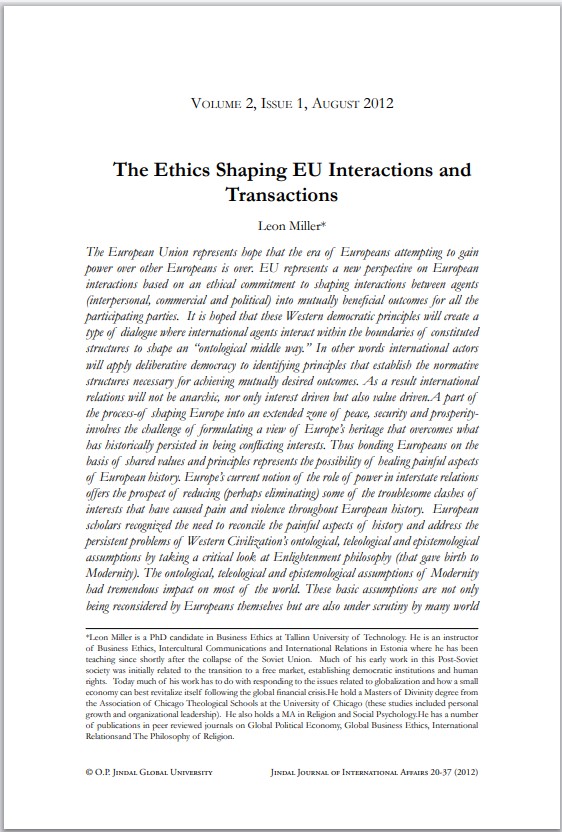The Ethics Shaping EU Interactions and Transactions
DOI:
https://doi.org/10.54945/jjia.v2i1.28Abstract
The European Union represents hope that the era of Europeans attempting to gain power over other Europeans is over. EU represents a new perspective on European interactions based on an ethical commitment to shaping interactions between agents (interpersonal, commercial and political) into mutually beneficial outcomes for all the participating parties. It is hoped that these Western democratic principles will create a type of dialogue where international agents interact within the boundaries of constituted structures to shape an “ontological middle way.” In other words international actors will apply deliberative democracy to identifying principles that establish the normative structures necessary for achieving mutually desired outcomes. As a result international relations will not be anarchic, nor only interest driven but also value driven.A part of the process-of shaping Europe into an extended zone of peace, security and prosperityinvolves the challenge of formulating a view of Europe’s heritage that overcomes what has historically persisted in being conflicting interests. Thus bonding Europeans on the basis of shared values and principles represents the possibility of healing painful aspects of European history. Europe’s current notion of the role of power in interstate relations offers the prospect of reducing (perhaps eliminating) some of the troublesome clashes of interests that have caused pain and violence throughout European history. European scholars recognized the need to reconcile the painful aspects of history and address the persistent problems of Western Civilization’s ontological, teleological and epistemological assumptions by taking a critical look at Enlightenment philosophy (that gave birth to Modernity). The ontological, teleological and epistemological assumptions of Modernity had tremendous impact on most of the world. These basic assumptions are not only being reconsidered by Europeans themselves but are also under scrutiny by many world cultures. Such dialectic reconsiderations have played a role in shaping a new European model of how power is employed in regional (thus international) relations.







